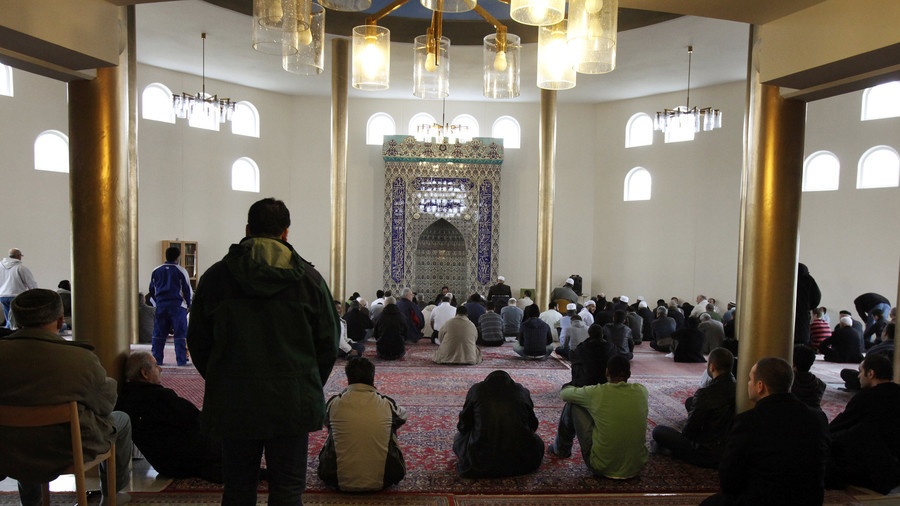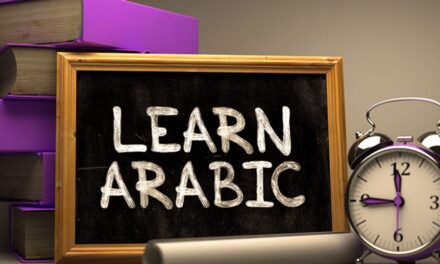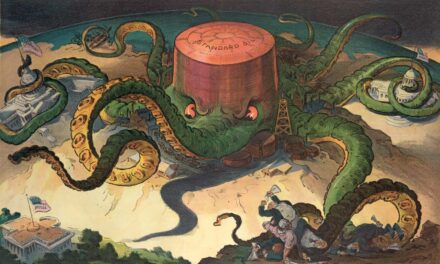All Praises for Allah and may peace and blessings be upon the Messenger of Allah ﷺ
This essay is not a refutation of the methodology of our pious predecessors. And nor of those who follow them in goodness. But yes, this is an open advice to the youth associated with the Salafi dawah, who knowingly or unknowingly have fallen in a multitude of errors that are open to be noticed by every man of knowledge, intellect and wisdom.
We know through a recurrent pattern of narrations from the Quran and Sunnah that advice is an integral part of the religion of Islam. The Prophet ﷺ said:
This religion is good advice.
Saheeh Muslim
This leads us to have a high regard and acceptance for kind advice, one that is backed by knowledge and wisdom. And, we also understand that the people who do not like to advised have a perversion in their hearts.
In the last couple of decades, a lot of our youth have started showing interest in the religion of Allah. And from the blessing of Allah on us is that He helped us to get acquainted with His oneness & the Sunnah of our beloved, Muhammad ﷺ. An even greater blessing is our effort and openness to understanding the call of Allah & his Messenger ﷺ through the understanding of the pious awliya from the first three generations of this Ummah.
- Awliya – Friends of Allah
- Ummah – Nation
Our youth have accepted the fact that it is important to return to the best generations of this Ummah to understand this religion. Furthermore, they have also taken cognizance of the fact that folktales and culture can not in any shape or form be the religion ordained by the Creator of this universe. And we say, all praise belongs to Allah for facilitating the guidance of our youth towards this noble methodology.
Despite the realization, many of these youth fall into issues that they criticized the deviated sects/forms of Islam for. Be it in lack of understanding the Quraan, a low regard for the veneration of daleel, sectarian blind following, hatred and extremism, or a similar trait. This has reached an extent that they have earned a negative image in our society. They are called the people of roughness, anger and argumentation.
- Daleel: Evidence
But since these youth call themselves as Salafi, the entire Salafi dawah has been tainted in the worst manner possible. It is such that a person of repute, who does not consider sectarianism a virtue, decides to disassociate from the label, Salafi.
This disassociation from the label is not because of the methodology that the salafi doctrine calls towards, and the goodness it preaches, but due the harsh reality that this noble dawah has been hijacked. Takfeer, Tafseeq and Tabdi of Muslims are common discussions among these salafis. In many instances, the dawah has been made to become as evil as the religion of the Khawarij.
- Takfeer: Excommunicating Muslims from Islam
- Tafseeq: Calling Muslims as Open Sinners
- Tabdi’: Calling Muslims deviants or astray
- Khawarij: First deviant group of Muslims that was used to rebelling against the rulers
With all the drama going around with the Salafi youth, a lot of damage has been done. There have been instances of people falling off the religion completely because of the actions of these self proclaimed Salafis. And our complaint is to Allah.
The ascription to the Salaf with these people is merely in words. The Salafi youth has forgotten the worship, character and amazing abstinence of our pious predecessors i.e. the Salaf.
In no way, do we say that we have not fallen into the same errors at any given instance in our lives. Or, we are better than those we criticize. But with a realization, comes a responsibility. Allah has commanded us, to remind others as a reminder benefits a believer. {Dhaariyat – 55} And with the consciousness of Allah, and a heart filled with love for the Muslims, we seek Allah’s aid in advising these youth.
Shortening the introduction, we will try to go into the mistakes that the Salafi youth have fallen into, we will only highlight a few so as to make everyone think, analyze and correct their affairs.
In the interest of the time, we will not quote references for everything in this blog as much of what we are trying to remind the reader is known to everyone who has treaded the path of knowledge.
1. Abandonment of learning and teaching of the Quraan
The salaf used to dislike for a person to be preoccupied with memorizing the books of scholars before memorization of the Quraan. The Quraan used to be the first book a student would pay attention to. If we use the same analogy, and put it over the process of learning and understanding, while skipping off the memorization bit, we would realize that it is disliked that a person tries to understand the words of a human who can be mistaken over the words of Allah who is free of all deficiency. Is it not the Quraan that deserves our primary attention?
A lot of the Salafi youth and their teachers pay extreme importance and venerence to the works of contemporary scholars and forget to understand the message of the Quraan.
From the recitation of the Quraan, to its correct articulation, and learning of its meanings, many of the youth have completely abandoned the words of their Creator. This is while the Prophet of Allah ﷺ is reported to have said, “The best of you is one who learns and teaches the Quraan.”
From the teachers of our lands, to the students who follow them, this is an error that makes us hang our heads in shame. The Imam of the people of Quraan and Sunnah says,
I regret wasting most of my time in something other than meanings of Quran!
(Zayl Tabaqat Hanabilah 4/519)
This is Imam Ibn Taymiah speaking, the man who spent his life explaining the Quraan and refuting the doubts of those who misinterpreted the Quran.
2. Not finding guidance in the words of the Prophet of Allah ﷺ
The second most important source of Islamic knowledge, and the best person to emulate is the Prophet of Allah, Muhammad ﷺ. Common sense urges us to learn about him and pay heed to his teachings so that our worldly life and after-life would be blessed. Ironically, we see the social media feeds of these claimants to the Salafi dawah replete with statements of scholars of the current day. And if someone among them finds more sense, he would keep posting words of medieval and classic scholars.
3. Not going back to the books of scholars through its proper sources
A translation is as good as the person translating the material. A translator can never be objective in his translations and keep his bias out. And depending on a modern day translation of a text to connect yourself with the religion of Allah is one deception that goes unnoticed.
Imam ash Shafie says in ArRisalah-47
It is obligatory upon every Muslim to learn Arabic language as per his capacity.
Imam ash-Shatibi says in Muwafaqat 2/101
Indeed this blessed shariah is in Arabic and other Non-Arabic languages have no involvement (in understanding it).
If this is the case, every Muslim must learn Arabic to understand his religion properly, then how about a Student of Knowledge?! How important is it for a person who says that he is upon the way of the Salaf that he learns the language of this religion? How can a person emulate a people without knowing what they said or did?
It is a big mistake that a person considers himself a Student of Knowledge and blindly follows a translation of the Quraan, Sunnah and the shariah. A translation can never suffice, and a translation is never enough to make you independent in learning the religion that you claim to love.
4. Following the scholars from the khalaf blindly
For a student to understand and apply the Shariah correctly, it is important to return to the understanding of Salaf. And where else would be the correct understanding of the religion except in the books of the Salaf.
With a movement of time, people become evil as is stated by the most truthful man to walk on this earth, Muhammad ﷺ. And generally, the current generation of Muslims is the worst that has ever been known. So, how can we leave the better for the worst?
Now, we do not mean that a person has to directly go to the books of the Salaf and try to decipher them. But what we are trying to point towards is the lack of importance given to the books of the earlier sections of this Ummah. This is such that people disassociate with others based on the opinions of a contemporary scholar, while the guy would be on the verdict of an earlier scholar. And to Allah we complain.
We ask Allah to forgive us and correct us to what pleases Him.
A student has to study in stages. He learns from the teachers around him, or if they are not available, a scholar who teaches over the internet with a well-known acceptance, such as the likes of Imam Muhammad Ibn Saleh al Uthaymeen and Imam Muhammad Nasir ud Din al Albani.
Here, let us understand this point through the words of Imam ash-Shatibi. He opines that there are two main conditions to learn from books:
1. That the reader should attain the understanding of the objectives of that knowledge and know its terminology.
2. A student should seek the books of the classical scholars.
Muwafaqat 1/147-154
While our scholarship is in opposition to this call, we see the Salafi students giving precedence to the books of contemporary scholars. And an important thing to note is that these books are mostly compiled from lectures! And as such, in many cases remain deficient. A strong pattern of blind following in this matter is a disaster. All this while the statements of scholars are not proofs, rather, we must seek proofs for the statements of everyone, irrespective of his status or stature.
5. Intertwining the Political interests of certain regimes with the Salafi Dawah
The relation of Muslims with Muslim rulers is based on listening & obeying, except in cases of sin. If the rulers order you with a sin, they are not to be obeyed in that. And the belief of Ahlus-Sunnah is to not rebel against Muslim rulers, as long as they do not portray open-clear-manifest disbelief.
While criticizing the rulers openly is a disliked action, in our readings, we have never come across statements where the salaf praised sinful rulers. And what is the apparent state of rulers today except sin and oppression? So, most of them do not deserve praise. And we ask Allah to bless us with leaders who love us and we love them, ones who pray for us and we pray for them.
Shaykh Abdullah ibn Abdur Rahman Aba Butayn said:
“Dua should be made for a ruler. He should not be praised especially with something which is not found in him. The people who praise them in their sermons are those who have caused death to this religion. Those who praise them are mistaken for there is no one among the rulers that deserves praise. Only dua of tawfeeq and guidance will be made for them.”
Ad Durar as Saniyyah 5/41
But today we see many salafi students are occupied with singing the praise of such open-sinning rulers in gatherings as well as on social media. Such that, if others do not join them in their praise, it is seen as a deficiency. This has reached epidemic levels, to the extent that when a ruler makes a mistake, or oppresses his people, these youth start finding reasons to defend the ruler.
This is a direct result of what these students have been poisoned with by their teachers. It is true that we do not have scholars of a high repute in our society. Graduation from a university is not enough to make someone a scholar, and that is something forgotten. Now, we don’t want you to misunderstand the context. We do have scholars in our society who have learnt from the scholars and are in every way capable of leading the society through their knowledge, experience and wisdom. And all praise be to Allah. But we are particularly referring to those with a cultist mentality.
But a word of caution is that we only believe in putting people at their proper places. We do not deem a non-scholar to be a scholar due to the love for him and we do not declare a scholar to be a non-scholar due to our hatred of him. May Allah guide us to what is correct.
Giving an example: There are some preachers who intertwined the Salafi dawah with the regime of the Arabs. This was such that praising the Arabs and their kings, their scholarship was sunnah and salafiyah. And when the Arabs derailed and the country and its leaders were changing colors, the dawah was getting diluted and confusing. Every Muslim must know that whosoever will attach his Islam to a country, its kings and a particular scholarship, will sooner or later fall into fitnah i.e.. tribulations.
We know of people who abandoned the methodology of the Salaf just because the evil of these self-serving regimes became too evident.
6. Partisanship towards some contemporary scholars
Earlier people used to be criticized for their extreme praise and veneration of the Imams of the Salaf such as Imam Abu Hanifah. While the Imam was from the best generations of Muslims, praise and liking for him was pretty obvious. Today, a new ideology has arisen, filled with cultist tendencies, that believes in the extreme veneration of their scholars from the current times.
A person’s goodness and virtue is gauged against his praise and obeying of a certain scholar from a certain tribe in a certain country. Such that, if the scholar changes his viewpoint, it is incumbent to follow him least you would be point out in ridicule. What is this except deviation, misguidance and sectarianism ie. hizbiyyah?
7. Declaring other Muslims as astray
While the faults of a Muslim are ones that should concern a true believer in the religion of Muhammad ﷺ, these youth in their ignorance, closed mindedness, and hatred of other Muslims are happy to declare them astray.
There is no doubt that refuting innovators is a great pillar of knowledge. How otherwise would a common man understand the right from wrong? But this rebuttal is the right of the Ulama, and not of students of knowledge and graduates from certain universities.
Some of our reckless Salafi youth have fallen into extremes with regarding to refuting others. An audio recording is well known where a miserable “scholar” criticizes 120 people by name in one single sitting!
Shaikhul Islam Ibn Taymiyyah said (Majmoo’ul Fatawa 20/8):
Whoever attaches himself to a person, such that he took friends and made enemies based upon agreeing with the statements or actions of that particular person, then he is {from those who have divided their faith and split into sects} [30:32] ))
Imam adh-Dahabi said :
The statements of contemporaries regarding each other are not to be given any importance especially when it becomes clear to you that it is based on hatred, sectarianism or jealousy. And no one is saved from it except those saved by Allah. And I do not know any era in which people were safe from it except Prophets & the people of the truth. And if I wish, I can enumerate from it (statements of contemporaries regarding each other) in many booklets.
Our Lord! do not put any resentment in our hearts towards those who believed, Our Lord! You are the Kind and Merciful.
Meezan-ul-Itidal 1/ 111
Shaikh Saleh al-Fawzan said:
“Regrettably most of the people nowadays have no concern except for gossiping, backbiting, slandering, Jarh of people, declaring fāsiq, Kāfir, innovators wrongfully. They have nothing to do but this!
Especially the students of knowledge, from among them, some have left seeking knowledge now and their only concern now is:
What do you say about such person?
Do you like his statements?
We are followers of Fulan and You are followers of Fulan!
My brother’s!
This is not befitting for a Muslim, especially a student of knowledge. Rather, the foundation in it is that he should observe Allah in his knowledge and guard his tongue. He should not comply with people (to please them). If he hears a statement of an ignorant person, he should turn away from it & pay no attention to it.
If you want salvation for yourself, occupy yourselves with the knowledge, and guard your tongues as this is the time of fitan (trials) especially after the doubts have increased.
The fitan may come by the name of religion, by the name of knowledge & scholars, beware of this! Be occupied with the seeking of knowledge, and being devoted to the obedience of Allah.
And be cautious of those who fish in troubled waters ( i.e. take advantage of a confused situation) for they take out the statement from you and spread it among the people while the statement is misconstrued. A person is accused of what he didn’t say. Especially when there are devices for recording in which your statement is recorded while you know not because it is done secretly in the companionship of the one who wants to make you fall.
Explanation of Kitab al-Kabaair 125-126
8. Extreme opinions in regards to teaching and preaching Islam
Islam is a religion of ease and wisdom. Rulings in this religion change with time and space. In an area where scholars are in abundance, it is only the right of scholars to teach. But in an area where knowledge and scholarship is seldom found, students of knowledge and people with some knowledge also need to move and preach the religion. All this since spreading Islamic knowledge is an obligation on the community.
There is a section of the youth that says that anyone can teach, even if he has no share of involvement with knowledge. What would such a person come up with except his desires and tales? So, we say that this is unacceptable and a person should study before preaching and follow the ulama in their understanding and analysis.
While, we have a rougher section in contrast to the first group. They say that a person should have a Tazkiyah, i.e. recommendation from a certain Shaykh, or perhaps any well known social media celebrity mas-squandering as a scholar, to share knowledge with the masses. However, observation tells us that such people who do not pay attention to knowledge of the salaf, and fall into all the remorseful affairs that we mentioned in this article, and are the quickest to shovel out rulings on people. And it is known to everyone, giving out rulings ie. fatawa is only the right of a scholar.
Tazkiyah is not confined to a mere certification. Rather it is the knowledge, taqwa i.e.. consciousness and understanding of a person that is a real testimony. If a person is teaching Quran & Sunnah, and teaching and learning from the well-known books of the Muslims, and does not go out of the Ijmaa of Ahlus-Sunnah, this is enough of a tazkiyah for him. This is especially when scholars know that he is teaching and remain silent regarding him.
Every student of Knowledge is not known by scholars, therefore if we say only those with a Tazkiyah can teach and preach, we are closing the doors of dawah and islah i.e. rectification!
Over to You
In conclusion, we advice that as much as possible, Muslims should go back to their classical scholarship and try to apply Islam in their lives. Theoretical debates and analysis will yield no good.
May Allah guide us to is pleasing to Him.
Written by Shabab Ibn Ismaeel and Said Ibn Mukhtar







Recent Comments